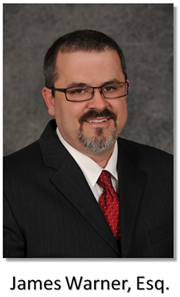March 13, 2024 •
Ask The Expert – Goodwill Lobbying Registration Requirements

FatCamera - Getty Images Signature
Q: I am an in-house lobbyist and frequently like to meet with legislators to build relationships. If I am not lobbying on any issues, do I still need to worry about registration requirements? A: You should absolutely be thinking about […]
Q: I am an in-house lobbyist and frequently like to meet with legislators to build relationships. If I am not lobbying on any issues, do I still need to worry about registration requirements?
A: You should absolutely be thinking about registration requirements anytime you interact with public officials or employees. Many states require registration for goodwill lobbying.
Goodwill lobbying is covered under the definition of lobbying in several states. The following states require lobbyist registration for goodwill activities: Alaska, Connecticut, Florida, Georgia, Hawaii, Idaho, Illinois, Indiana, Kansas, Maryland, Minnesota, Missouri, New York, North Carolina, Oregon, Pennsylvania, Tennessee, Texas, and Vermont.
Some states go as far as defining the specific conduct constituting goodwill lobbying. Registration in Connecticut is required for “door opening” when an influential individual interacts with a state agency on behalf of a client. The Tennessee Ethics Commission has said that “getting to know” or “building rapport” is considered lobbying in the state of Tennessee and is subject to all registration requirements.
Oregon defines, goodwill, as used in the definition of lobbying, as kindness, friendliness, benevolence, or generosity by a person or entity directed toward a legislative official that could cause the legislative official to have a favorable impression of, or thankfulness to, the person or entity.
It is always a good idea to check the jurisdiction’s specific registration requirements on our website prior to communicating with officials.
You can find this information under the “Registration” section of the U.S. Lobbying Compliance Laws online publication.
October 24, 2022 •
Ask the Experts – Goodwill Lobbying and Keeping Compliant

Q: I am a registered lobbyist in Illinois and want to take an Illinois official out to dinner in order to garner goodwill. What do I need to know to ensure we are compliant? A: In Illinois, lobbyists reports must […]
Q: I am a registered lobbyist in Illinois and want to take an Illinois official out to dinner in order to garner goodwill. What do I need to know to ensure we are compliant?
A: In Illinois, lobbyists reports must itemize for each individual expenditure or transaction, including any expenditures made by a consultant in performing services for the lobbying entity. The report must include the name of the official for whose benefit each expenditure was made, the name of the client the expenditure was made on behalf of, the total amount of the expenditure, a description of the expenditure, the vendor to whom the expenditure was made, the date of the expenditure, and the subject matter of the lobbying activity, if any.
Lobby or lobbying is to communicate, including the soliciting of others to communicate with an official of the executive or legislative branch of state or local government for the ultimate purpose of influencing executive, legislative, or administrative action at the state, municipal, county, or township government level. In Illinois, influencing includes promoting goodwill. Additionally with the passage of Senate Bill 539 in 2021, lobbying on a local level, except in Chicago, requires registration and reporting with the state.
In order to comply with Illinois lobbying law, the dinner would need to be reported on the appropriate entity report. There are two notification requirements a lobbyist must make to an official. First, the official must be informed, in writing, at the time the expenditure is received by the official, that the expenditure is reportable, and the official will appear in the expenditure report. Second, within 30 days after a reporting deadline, a lobbyist must notify each official on whose behalf an expenditure was reported. The 30-day notification must include the name of the registered lobbyist, a description, the total amount, the date, and subject matter of the expenditure. Please note there is a $75 per person limit on meals. Additionally, because Illinois does not have a time or expenditure registration threshold, any other individuals attempting to influence the official will need to register as a lobbyist.
For more information, check out the “Reports Required” section of the Lobbying Compliance Laws online publication for Illinois. Please do not hesitate to contact us if you have questions.
January 6, 2015 •
Ask the Experts – Goodwill Lobbying and Registration
Q. I will be having meetings with state legislators to introduce myself and my employer. I do not have any legislation of interest yet, though I anticipate that I will. Will this require lobbyist registration? A. Goodwill lobbying is covered […]
 Q. I will be having meetings with state legislators to introduce myself and my employer. I do not have any legislation of interest yet, though I anticipate that I will. Will this require lobbyist registration?
Q. I will be having meetings with state legislators to introduce myself and my employer. I do not have any legislation of interest yet, though I anticipate that I will. Will this require lobbyist registration?
A. Goodwill lobbying is covered in many jurisdictions. The following 19 states may require lobbyist registration for goodwill activities: Alaska, Connecticut, Florida, Georgia, Hawaii, Idaho, Illinois, Indiana, Kansas, Maryland, Minnesota, Missouri, New York, North Carolina, Oregon, Pennsylvania, Tennessee, Texas, and Vermont. Some jurisdictions have specifically addressed goodwill lobbying. Connecticut covers “door opening,” including such things as telephone calls that you make to set up informational meetings with officials. The Maryland State Ethics Commission has indicated generating goodwill or engaging in educational discussions with officials or employees is considered lobbying.
Some states consider additional activities in determining whether an activity is goodwill lobbying. In Pennsylvania, lobbying includes providing hospitality to a state official or employee for the purpose of advancing the interest of the lobbyist or principal. Kansas also includes entertaining or providing a gift to a state officer or employee in its definition of lobbying in certain circumstances.
Any time you interact with a state official or employee, you must consider whether your activities constitute lobbying, even if you are not engaging in lobbying in a traditional manner. Your activities may count toward the threshold requiring lobbyist registration.
You can directly submit questions for this feature, and we will select those most appropriate and answer them here. Send your questions to: experts@stateandfed.com.
(We are always available to answer questions from clients that are specific to your needs, and we encourage you to continue to call or e-mail us with questions about your particular company or organization. As always, we will confidentially and directly provide answers or information you need.) Our replies to your questions are not legal advice. Instead, these replies represent our analysis of laws, rules, and regulations.
State and Federal Communications, Inc. provides research and consulting services for government relations professionals on lobbying laws, procurement lobbying laws, political contribution laws in the United States and Canada. Learn more by visiting stateandfed.com.

